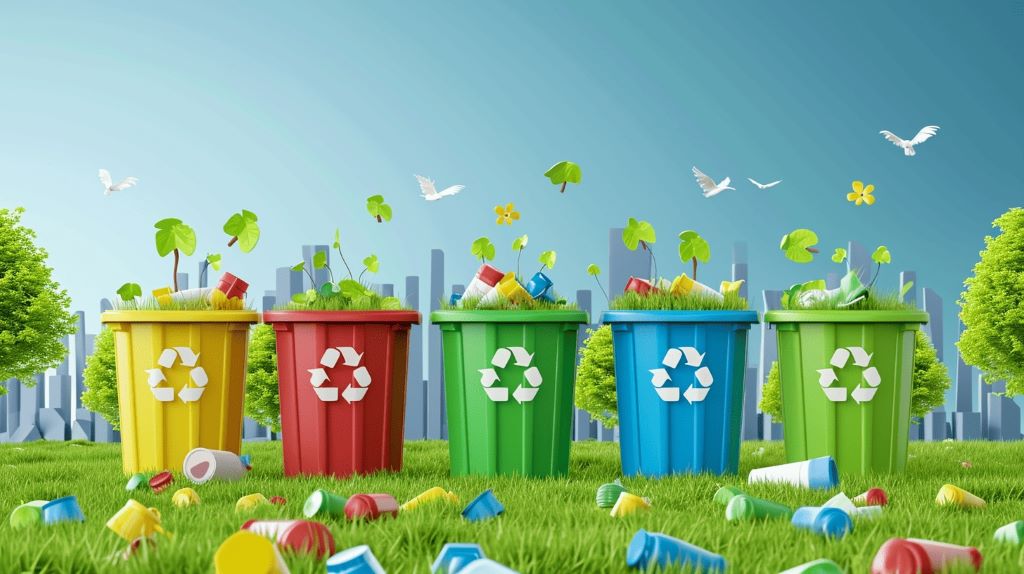Introduction to Eco-Friendly Waste Management
Waste management is crucial to environmental conservation, especially as cities grow and waste becomes more complex. Eco-friendly waste management is essential for sustainability, addressing current challenges while ensuring a healthier planet for future generations. Sustainable dumpster rental solutions, which reduce emissions and promote recycling, highlight this responsibility. This strategy prioritizes recycling, reuse, and environmentally friendly waste treatment to reduce waste production. Adopting eco-friendly practices requires innovative technologies and a commitment to environmental stewardship.
The Importance of Sustainable Waste Practices
Sustainable waste practices are crucial for reducing the environmental impact of traditional waste management, which often leads to pollution and resource depletion. Promoting recycling and waste-reducing models helps conserve resources and minimize landfill overflow. Governments and organizations increasingly adopt policies that support sustainability, reflecting international agreements and local initiatives. This shift aligns with a circular economy model, emphasizing that waste can be a resource rather than a byproduct.
Key Strategies for Eco-Friendly Waste Disposal
Eco-friendly waste disposal strategies focus on ‘reduce, reuse, and recycle.’ Recycling transforms waste into new products, lowering demand for raw materials and reducing greenhouse gas emissions. Composting turns organic waste into nutrient-rich soil, decreasing landfill volume and enhancing soil health for better agricultural yields. Even solutions like well-maintained portable toilets, which contain and manage human waste responsibly, prevent environmental contamination compared to less controlled methods. Upcycling creatively repurposes discarded materials, reducing resource strain and pollution. Encouraging these practices promotes a conscious mindset and fosters innovation in waste management.
Innovative Technologies in Waste Management
Innovation drives modern waste management, with technology providing vital solutions for efficiency and sustainability. Smart waste bins with sensors can track levels and optimize collection routes, reducing carbon emissions compared to traditional methods. Furthermore, waste-to-energy systems provide a sustainable substitute for fossil fuels by reducing the amount of garbage produced while producing electricity. These advancements support environmental goals and represent a shift toward smarter urban planning, addressing key environmental challenges for municipalities and businesses.
Role of Communities in Promoting Sustainable Practices
Communities are crucial in promoting eco-friendly waste management through collective initiatives like ‘zero waste’ campaigns, recycling drives, and composting workshops. These programs empower individuals to adopt sustainable practices and foster a sense of responsibility. By prioritizing sustainability, communities can reduce their environmental footprints and create educational opportunities that boost engagement. As involvement grows, the positive impacts can influence policies and encourage broader adoption of sustainable practices.
Benefits of Implementing Eco-Friendly Waste Solutions
Embracing eco-friendly waste solutions offers significant benefits. Environmentally sustainable practices reduce emissions and pollution and protect biodiversity, leading to a healthier planet. Economically, they create jobs in recycling, materials recovery, and green product development. Socially, cleaner environments improve public health and enhance quality of life while fostering a culture of responsibility and innovation in managing environmental impact.
Challenges and Solutions in Waste Management
Transitioning to eco-friendly waste management faces infrastructure limitations, economic constraints, and public resistance. However, careful planning and strategic investments can overcome these barriers. Essential steps include government policies that incentivize sustainable practices, regulations promoting recycling, and fostering public-private partnerships. Education and advocacy play key roles in shifting public perception and encouraging sustainable behaviors among citizens.
The Future Outlook of Waste Management
The future of waste management is poised for transformation through emerging technologies like artificial intelligence and blockchain, which aim to optimize processes and enhance recycling transparency. Innovations in waste processing and material recovery are crucial for reducing environmental impact. The industry is shifting towards integrating waste management with broader sustainability initiatives, focusing on waste reduction from the outset. This evolution addresses ecological issues, creates economic opportunities, and fosters resilient, eco-conscious communities.




